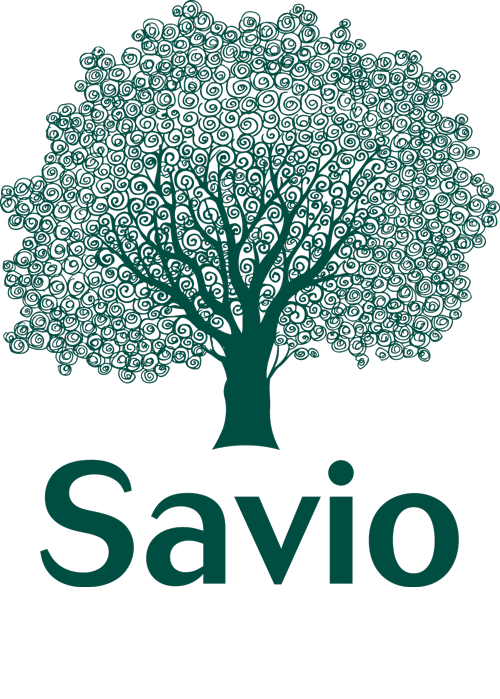Youth Behavioral: Kyle's Story
Kyle slumped in the intake chair, arms locked, and mouth tightened. The seventeen-year-old stared at the flickering light overhead, tuning out another grown-up with fancy papers and clipboards. The words “alternatives to detention program” grabbed his attention back. Maybe he could avoid juvenile detention. The Savio therapist explained the short-term program was designed to help Kyle return to his community with better support systems in place, such as outpatient services, to prevent future problems.
The program flew by, and Kyle felt overwhelmed at the thought of returning to his former world. It was just him and his dad, who also felt at a loss for how to help his son navigate his world and feelings. Up until now, anger had been the lens through which Kyle saw his life. He lashed out at both classmates and teachers, consistently initiated conflicts at school, and spent more time hiding in the bathroom than in the classroom. Understanding the need for more than a quick fix, he was referred to Savio’s Youth Behavioral program, which could deliver support tailored to his daily environment.
Kyle and his dad opened the door slowly, unsure of what to expect. Their therapist would be in their home three times per week for the next three months, aiming to improve their relationship and foster positive change. At first, though, it felt like things were going backwards. Kyle was talking back more, yelling at his dad, and still getting in trouble at school. But by taking in the family’s existing circumstances, their Savio therapist started to pick up on clues that shed light on why things felt so hard. Kyle’s mother left long ago, feeling unable to continue parenting. A deeper picture began to emerge: Kyle retreated into a smaller world, his bedroom a fortress where he spent every spare moment immersed in video games. Weekends became solitary confinements, fueling a cycle of friction with his father. Beneath it all, Kyle carried a heavy burden, his self-esteem eroded, his inner frustration trapped, never finding release.
“Have you ever tried any sports or afterschool activities?” Kyle’s therapist asked Youth Behavioral one afternoon session.
“Well,” Kyle looked down in embarrassment, “I was on the basketball team at school, but I’m not allowed to play anymore since I kept getting in trouble.”
His therapist didn’t push—just nodded. “That must’ve been hard.”
Kyle shrugged, but his hardened frown said everything. The game had meant something to him. His therapist saw an opening and suggested a local rec center team, a fresh start. Kyle signed up, skeptical at first, but for the first time in a long time, he felt like a part of something again. But basketball wasn’t just about playing—it was about taking ownership of his emotions. He worked alongside his therapist to track his emotions before they exploded.
They came up with a fun way to track Kyle’s anger: a ‘hot sauce’ scale. ‘Mild’ was like a little tingle, ‘medium’ was getting warmer, ‘hot’ meant things were really uncomfortable, and ‘fuego’ was when he knew he had to walk away. This worked well, but they knew it would be even better if his dad understood it too. Working together, they established a communication tool, known as ‘exit and wait,’ to manage their need for space. When either felt overwhelmed, they’d use their code phrase - Dad would say “red light” and Kyle would say “freeze” - signaling for them to go into separate rooms to cool down and then return to finish the conversation.
As their therapist approached for one final session, a familiar rhythmic bounce echoed from the driveway. Kyle and his father were locked in a spirited game of basketball, laughter mingling with the squeak of sneakers and the satisfying thud of the ball against the backboard. Gone was the boy consumed by anger, passively awaiting his fate. In his place stood a young man, vibrant and alive, his eyes brimming with the promise of a bright future. He was fully engaged in his classes, truly listening to his teachers, and repairing and building friendships.
Dad smiled, putting an arm around Kyle as they stood with their therapist. “We really appreciate everything,” he said, “You know, we were kinda stuck before. You helped us see things differently, in a way that actually made sense. It’s... it’s changed everything for us.”
With smiles beneath the garage light’s glow, they returned to finish their one-on-one game, but the real victory was the one they shared together.

